By Sofia McLaren
This is a letter to my 6-year-old self. As a 5-year-old my house was flooded by Hurricane Katrina and my family remained in New Orleans for another year so that I could finish Kindergarten. This letter informally addresses what went on during that time for my white family and attempts to point out to my younger self the inequities that occurred during that time and connect them to the current pandemic that we are experiencing. This is relevant because New Orleans, specifically the black community in New Orleans, is being targeted by the corona virus due to different circumstances. I am hoping that by reading this letter to my younger self, you are able to ask questions similar to the ones I raise and remember past experiences through a new lens. Hopefully, you feel inspired and want to read more pieces that we as a class have created.
Dear Sofia,
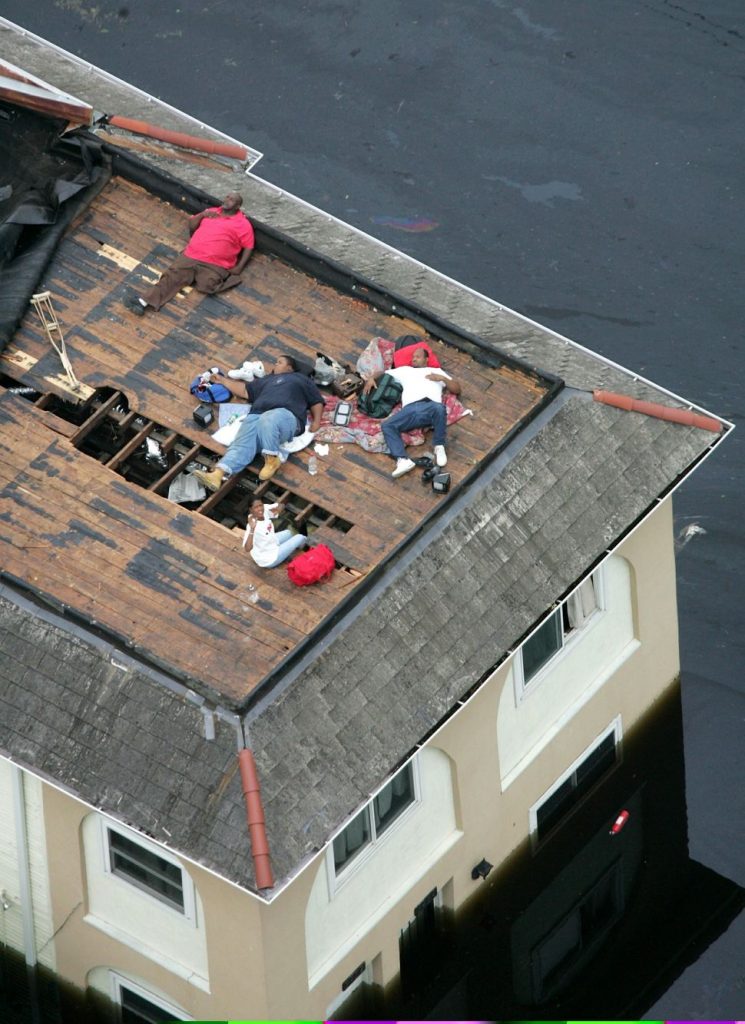
I know you are feeling as if your world will never be the same; this is not a unique feeling, and the fact is that you will return to “normal” much sooner than many others around you. You have lost the stability that you knew so well. But remember the day that Hurricane Katrina hit. You were safe, far from the path of destruction, unable to imagine what it would be like to be the people on top of the roofs of their houses. You simply stared at the television, like you did with your parents every morning, before the hurricane hit your house, wondering what destruction would be announced next. Asking, “Why isn’t someone helping people off their roofs? How did they end up there in the first place?” The idea that these people had been abandoned in an unfathomable position was impossible to you… you did not know better.
“Evacuation was not what you wanted, but it was something you were given, not a punishment.”
I am telling you, from 14 years later, that now we do know better. It was our privilege to be able to evacuate, to drive away from the city of New Orleans on the side of the freeway that was supposed to lead into the city. You are safe, you are protected, you are cared for. You may have lost your sense of childhood safety, but many others lost the lives of the ones they loved, evacuation was not a given. As you played “Evacuation” with your best friend, using a dollhouse, you were unaware of what a privilege that was. To you, evacuation meant leaving behind possessions you thought you should have, you piled the car with toys and clothes only to be told that you were allowed one bag. One bag? How could you fit your life into one bag? You are five and you need your dolls, your dress up clothes, and your doctor kit. Evacuation was not what you wanted, but it was something you were given, not a punishment. You understood what had to be done, your gentle voice speaking to the dolls saying, “you can’t take that sweetie, there’s not enough room, only one bag.” But understanding did not mean accepting, and it did not mean considering that other people may not be doing the same thing. All you knew was that the traffic was horrible, there was no empty space on the road in sight, so that must have meant everyone was leaving too, right? Wrong.
“The hurricane was not the same for everyone.”
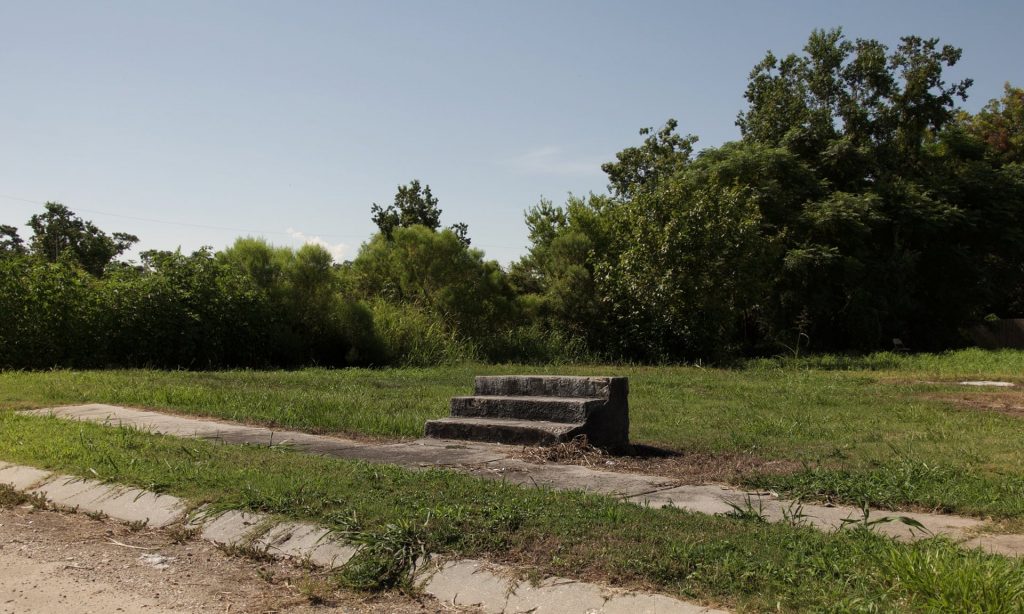
The luxury of leaving, which we had, was not the reality for many. Some people did not have the means or the support to leave the city, so they stayed in the convention center, they had no choice when it came to staying in the city. You did not know what to ask then, you did not recognize who was getting left behind, but you will later. You will know to ask who is being left behind and what is being done. You will ask why were there no relief efforts in the neighborhoods being hit the hardest, why were people being overlooked and why did they all look the same? Why are their neighborhoods still completely in shambles 14 years later? Why was the federal response so lacking? People weren’t jumping to their aid, it would take months for help to come. The Lower 9th Ward, the area right by some of the levees was hit hard; to this day there are concrete steps leading nowhere, in place of a home that used to be. The hurricane was not the same for everyone.

Today, yet again African Americans are being forgotten, the same thing is happening and you are seeing it. The convention center is open once again for emergency needs in response to the Covid-19 pandemic and will be used as a temporary hospital. Patterns have formed, the convention center is open again, the black community is targeted again, there is yet again not enough federal response in a city that needs more help and oppression continues. You’re seeing the numbers of Covid-19 cases rise faster in New Orleans, it wasn’t a specified population until more and more African American people came to the hospitals with symptoms of the virus. You may not know why or what questions to ask as a 6-year-old, but it is clear to you now, as a 19-year-old what needs to be addressed. Why are there certain communities with more cases?
“They are so called “essential” workers, but they are not thought of as essential unless we are in a crisis.”
Many African Americans in the community are working the lower income jobs that have them interacting with more people and places. For example, they work in grocery stores, drive buses, and clean facilities; in those jobs they do not have the option of working from home, as their job is to serve the local community. They are so-called “essential” workers, but they are not thought of as essential unless we are in a crisis. You have learned to ask, why are they essential now? Why are they ignored regularly? Why are they the main people working the service jobs? Jobs aren’t the only reason the African American population is at risk for the virus; black people are also less likely to be insured which may make them more hesitant to go to the hospital, get tested, and get treatment. Insurance is not the only problem with healthcare, because there are many inequalities and biases that affect the black community that have been prevalent in New Orleans for a long time. During times of crisis the oppressive tendencies of our communities surface, but they tend to disappear after the danger is past. It is our job to make them known and to notice them. We have to make known the crisis occurring within the current pandemic, and understand that the people in New Orleans have no choice when it comes to working their frontline jobs.
“Everyone may be experiencing the same crisis, but it is not the same caliber of crisis for everyone.”
Today, the new coronavirus is taking thousands of lives daily, but the lives being taken are not equal, the virus is not affecting everyone in the same way. Everyone may be experiencing the same crisis, but it is not the same caliber of crisis for everyone. You do not know what questions to ask, but 14 years later you do. You may finally know what to ask as a 19-year-old, but that doesn’t mean you have answers. You do not know why oppression continues and why people choose to ignore the reality of the world’s oppressive nature. It is because of this class that you know to ask these questions, to see the inequities and see the problems that lie behind crises and everyday scenarios. Where is the extra relief for the city now during the coronavirus outbreak?
My five year old friend, questioning is the key, observing the world through a critical lens that acknowledges your view is not the view of every person, your perspective is unique to you and cannot be taken for granted or used as the umbrella perspective for all those around you. As you mourn the loss of the world you have known, acknowledge the loss that has been more damaging than you can imagine. You are living in and out of friends’ homes and apartments, battling lice, dealing with robberies, and coming to terms with saying goodbye to the place and people you call home, but many have not been as lucky as you. You are white, you go to a private school, you have a web of friends to support you, and you have a family whose stability remains. The tears that you and your family have shed over the robbery, the mucking out of your house, and the blown-off roof of your church are valid, but the tears shed by others whose reality has gone unnoticed must be recognized. Recognize the oppression during the hurricane you have gone through and recognize the oppression that has resurfaced 14 years later in the wake of a new crisis.
Love,
Slightly Older Sofia
I am hoping that by reading this letter to my younger self, you yourself are asking these questions and remembering past experiences through a new lens. Hopefully, you are feeling inspired and want to read more pieces that we as a class have created. We have another publication coming out dedicated to our work in this class that focuses on reporting different happenings on the UPS campus. Our goal was to document and report on events and happenings on campus this year. This class has given each of us different tools to continue with our education and use in the real world. This next showcase publication will bring home everything that we have learned and value about this class. I myself have come out of this class with a new perspective on life and the inner workings of the world, as a class we have confronted some difficult topics that have helped us become better and more observant human beings.


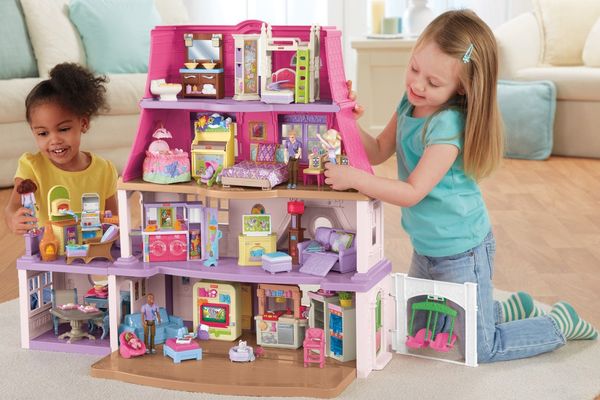
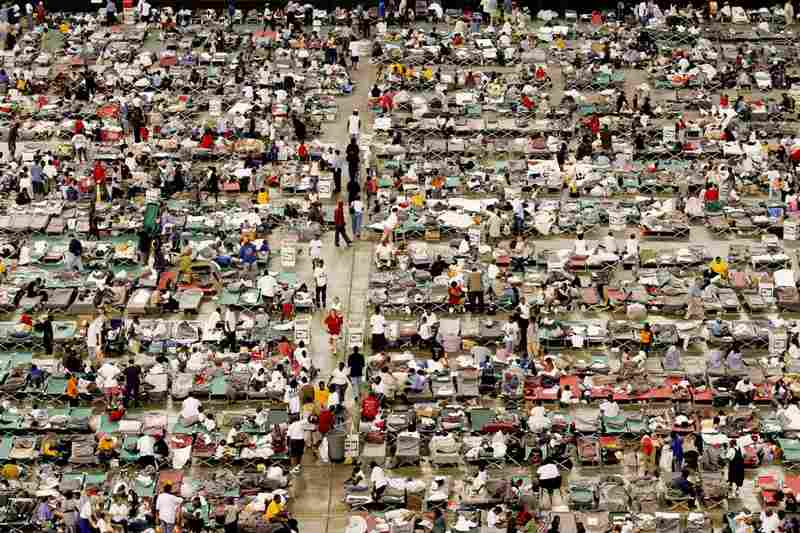
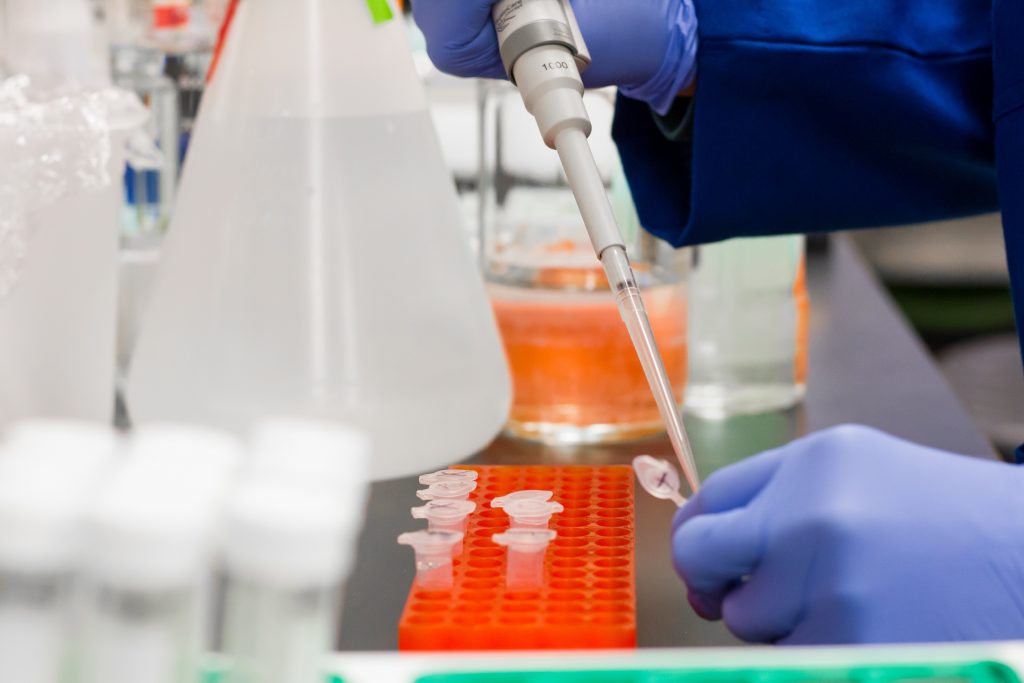
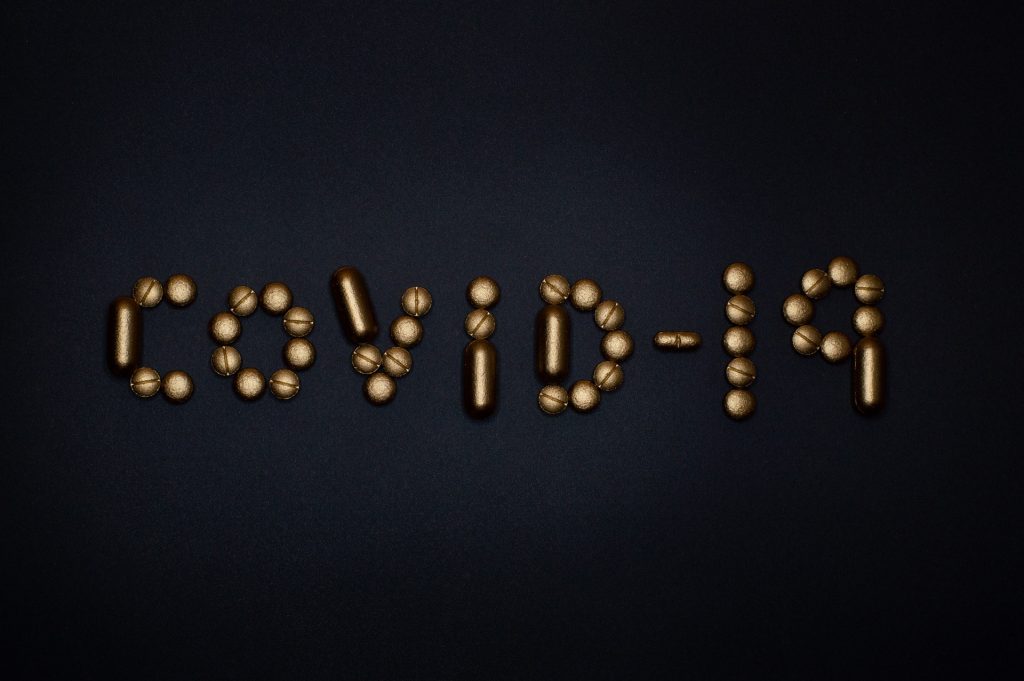
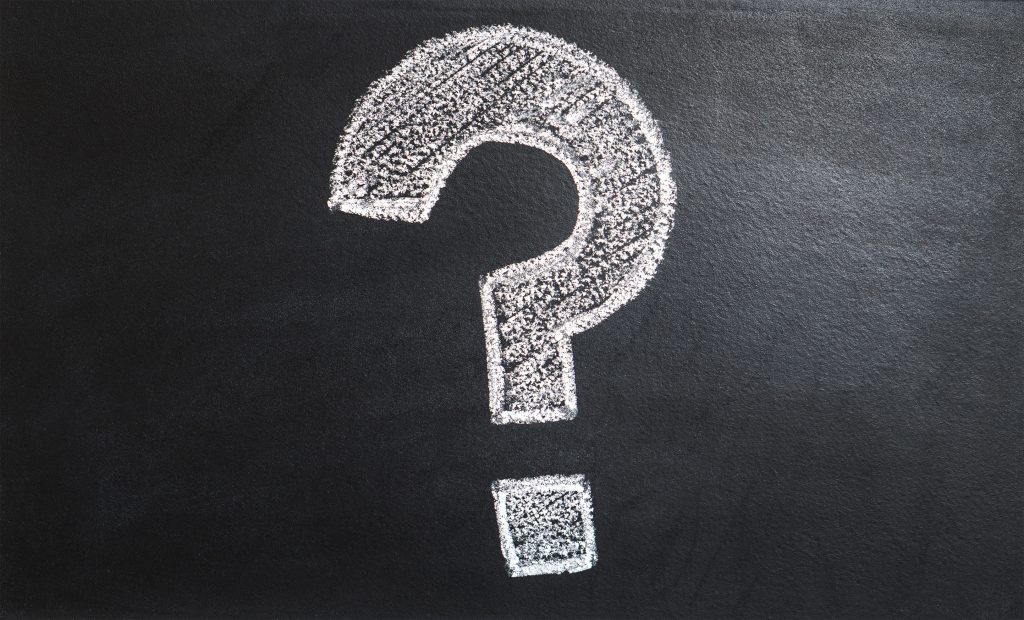
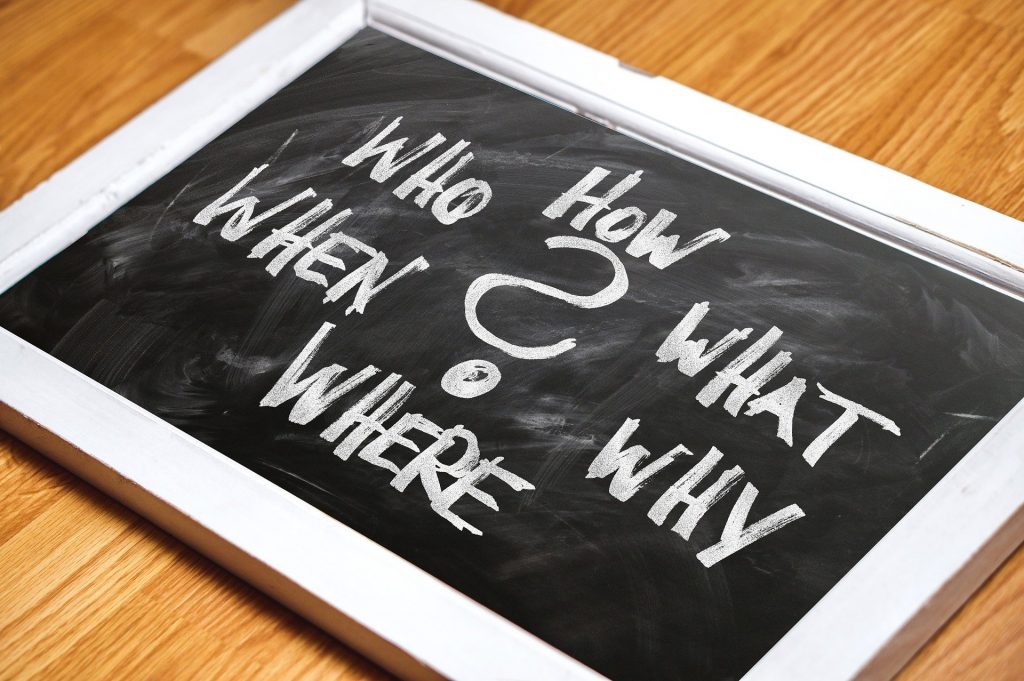
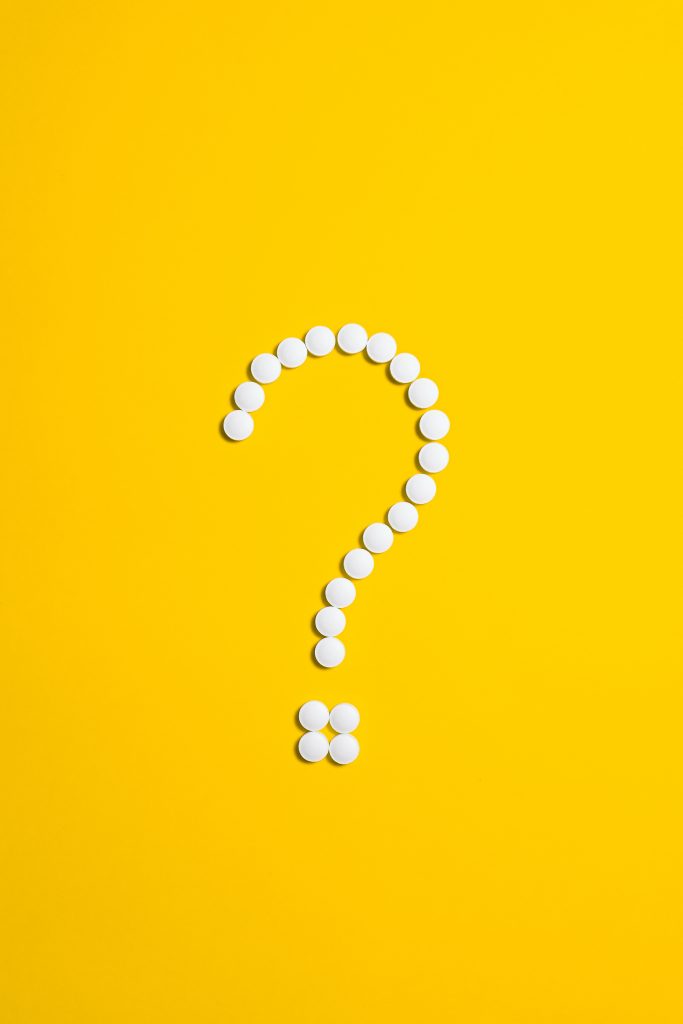
Thank you for this piece, Sophia. One of the jobs I held before Katrina was cleaning your house. I was struggling with alcoholusm and a member of St. George’s.
You made me cry. We live in a fallen world but young people like yourself give me hope. Please don’t quit fighting for Social Justice.
I still do various jobs. One job I do is web content writer for a Civil Rights Litigation Attorney, Cameron Sehat. Google Sehat Law Firm Blogs if you want to read my social justice writing. I have not invoiced him again for the last 2 because I want to wait until after this current crisis to ask a business owner in CA for my money. I asked him not to oublish my name because I was living in CA when I started this job & didn’t want to be targeted by police.
Keep up the good fight!
Joanne
Thank you, Sofia, for these very true words. We need to notice, and do more.